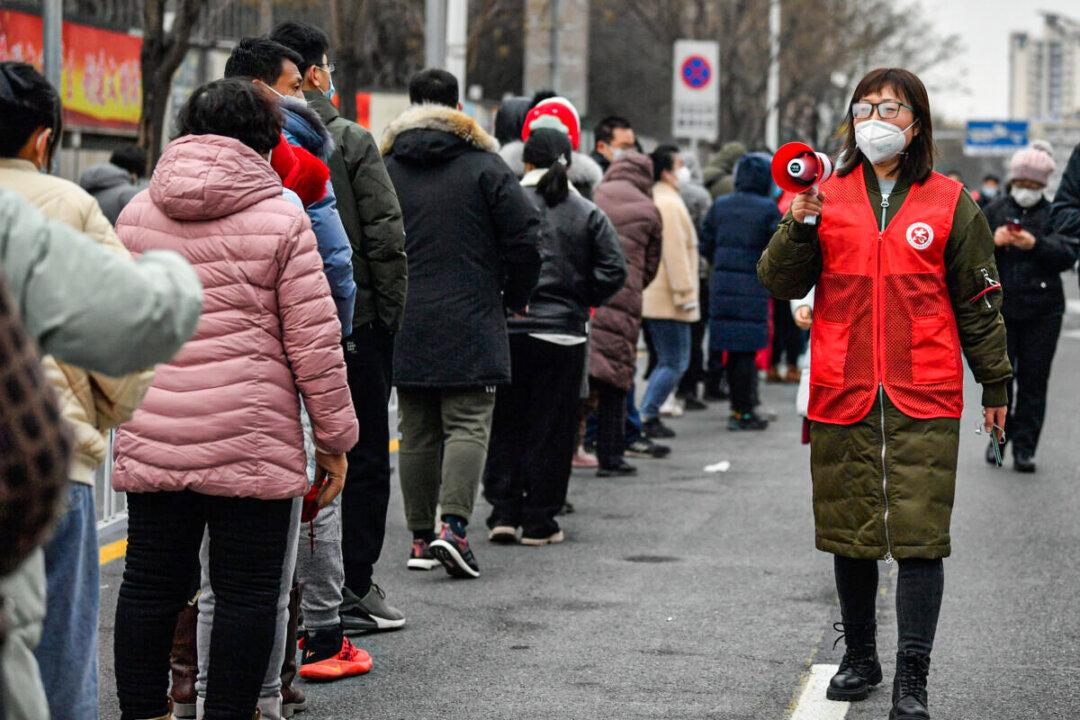The northern Chinese port city of Tianjin has ordered a second round of mandatory testing for its 14 million residents, as the highly contagious Omicron coronavirus variant spreads to a third city weeks before Beijing prepares to stage the Winter Olympics.
Tianjin, about 62 miles from Beijing, was the first Chinese city to officially combat the new variant. Tianjin has vowed to serve as a “moat” to protect the capital, which is to host the Winter Olympics from Feb. 4.




